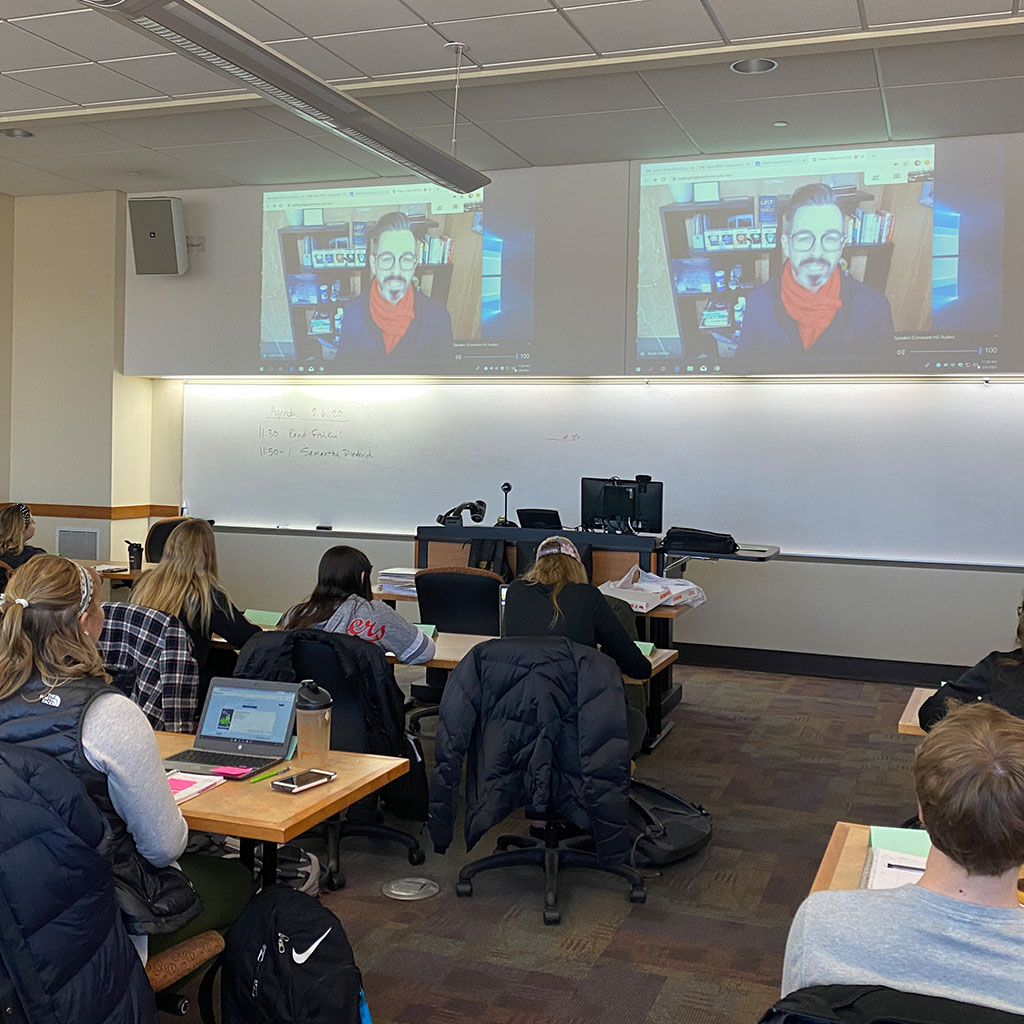After a few days working on taking my digital marketing courses to an online format, a thought entered my mind that added an additional layer of apprehension. Did anyone withdraw from the courses? I took a deep breath while logging into Titan Web (student registration portal). The same student enrollment count remained. Relief for them in times of uncertainty.
To put my role in context, I am a faculty member at a state university in Wisconsin. For my students, the financial investment to earn a college degree isn’t taken lightly. Each student in my course pays about $1,080 ($360 per credit). Multiply that figure by 61 students, collectively they have made a $65,880 investment to learn about digital marketing this semester.
Our provost, John Koker, reminds faculty to focus on teaching. It does not need to be perfect. Just be there alongside your students, sharing and providing the experiences that make them career-ready. The plans for my courses are evolving and progress is being made (especially when I allow my mind to relax and focus on one aspect at a time). Here’s how my students will experience online learning. College students, I encourage you to let someone else in your family know about the tools your instructors are using. As time permits, use the quarantine as an opportunity to learn new concepts with them.
FACEBOOK GROUP DISCUSSIONS
I’ve set up a Facebook group for each of my courses. I came across the idea in the Stukent Professor Community when Lisa Power of St. Martin’s University in Washington described her students requesting a requested a “salad bar” model for earning class participation points, especially since some can’t attend synchronous Zoom lectures. I’ll require one Facebook post per assignment as one insightful comment for each of my students. An added bonus of using Facebook groups is it requires my students to dust off their profiles and use the platform, which is an effective channel to reach audiences in the real world.
LINKED-IN TO CONNECT STUDENTS WITH SMALL BUSINESSES
On March 17th, I introduced a collaboration opportunity for small business owners in our region. The end-of-semester project for my digital marketing students has been retooled to help small business owners complete digital marketing tasks. Students will select from the list of businesses who have come forward with needs, which primarily includes landing page development and content for social media platforms.
PRE-RECORDED VIDEOS FROM PRACTICIONERS
Each unit in my digital marketing courses begins with a 20 minute recap of content, followed by an applied activity. Last semester, I invited content matter experts to lead the activity. In the online environment, the activities will be pre-recorded on video. So far, three alumni are creating videos for my courses. Ben Heindel of Connexus Credit Union will describe the email marketing activity. He will join our Facebook group to evaluate the student work and will award 5 extra credit points to the top three ideas. Brody Karmenzind, Client Solutions Manager at Facebook, will provide a two-part series to describe Facebook advertising at a high-level, followed by a deeper dive into look-alike audiences. Ryan Berman, Senior Account Executive at Quantcast, will describe how his company is simplifying advertising for brands and publishers with real-time, first-party data and machine learning.
COLLABORATE ULTRA FOR COURSE CONTENT AND GROUP PROJECTS
Collaborate Ultra will be used for course lectures and our Google ad words simulation performance updates. The nice feature of this platform is the ability to record for students who are unable to attend during the class time. Group presentations, which includes Infographic presentations and social media audits for professionals, will be recorded as well. I am crossing my fingers that everyone will be able to hear the presenters clearly. The strain on our technology platforms will be significant during this time.
Learning online will offer the opportunity for new methods of collaboration. Connecting students with small businesses should provide assets to build their digital portfolios. If they prove their worth, the digital marketing students may have a ‘side hustle’ to earn additional income in the future while they finish their degrees. Now that’s time well spent.




Leave a Comment >>